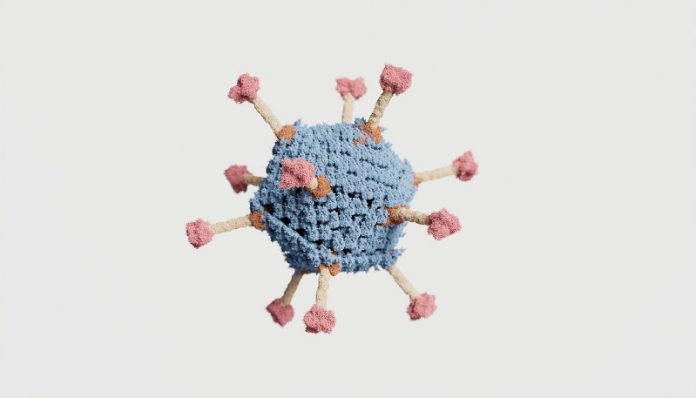
Researchers at Johns Hopkins Medicine have discovered how COVID-19 causes diarrhea, offering clues for potential treatments.
By using human stem cells to create a “mini intestine-in-a-dish,” they identified several molecular mechanisms behind this symptom.
The findings, published in Cellular and Molecular Gastroenterology and Hepatology, highlight how the virus affects the gut.
Along with common COVID-19 symptoms like fever, sore throat, and cough, up to half of those infected experience diarrhea.
About 30% of these cases lead to long COVID, characterized by persistent symptoms such as chronic pain, brain fog, and intense fatigue.
Dr. Mark Donowitz, Emeritus Professor of Medicine and Physiology at Johns Hopkins University School of Medicine, explains that while COVID-19 diarrhea isn’t life-threatening like cholera, it can indicate a severe infection and a higher risk of long COVID.
Previous research showed that ACE2 (an enzyme the virus attaches to) and TMPRSS2 (an enzyme that allows the virus to enter cells) are present in the intestine. However, the detailed mechanisms causing diarrhea were unclear until now.
To uncover these mechanisms, Donowitz and his team used a model of human intestines called enteroids. These are formed by stimulating human stem cells to develop into the various cells lining the intestine, creating a single layer of cells in a petri dish.
The researchers exposed these enteroids to live SARS-CoV-2 virus and observed changes in the gut cells’ protein expression and function. In typical diarrhea caused by bacteria, viruses, or medication, changes in transport proteins move molecules across cell membranes, inhibiting sodium and chloride absorption while increasing chloride secretion. COVID-19 diarrhea showed both effects, which is common in many diarrheal diseases.
Interestingly, the chloride secretion in COVID-19 diarrhea involved a different class of proteins called calcium-activated chloride channels, unlike other diarrheal diseases that activate the cystic fibrosis protein.
Another unique aspect of COVID-19 diarrhea is that it results from both direct effects on transport proteins and inflammation, similar to how COVID-19 affects the lungs and other body parts. This suggests that using inhibitors to control this inflammatory response might help treat COVID-19 diarrhea.
Dr. Donowitz notes that understanding long COVID remains a significant challenge, as the virus can persist in the intestine for a long time. The next step is to determine what allows the virus to live in the intestine and sustain itself over extended periods.
In summary, the research provides a deeper understanding of COVID-19-related diarrhea and opens new avenues for potential treatments.
By targeting the identified mechanisms and inflammatory responses, future therapies could help manage this unpleasant symptom and improve outcomes for those suffering from COVID-19 and long COVID.
If you care about COVID, please read studies about vitamin D deficiency linked to severe COVID-19, death, and how diets could help manage post-COVID syndrome.
For more health information, please see recent studies about COVID infection and vaccination linked to heart disease, and results showing extracts from two wild plants can inhibit COVID-19 virus.



